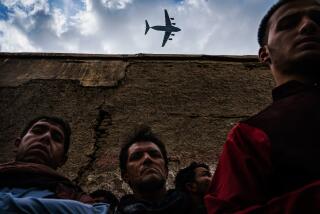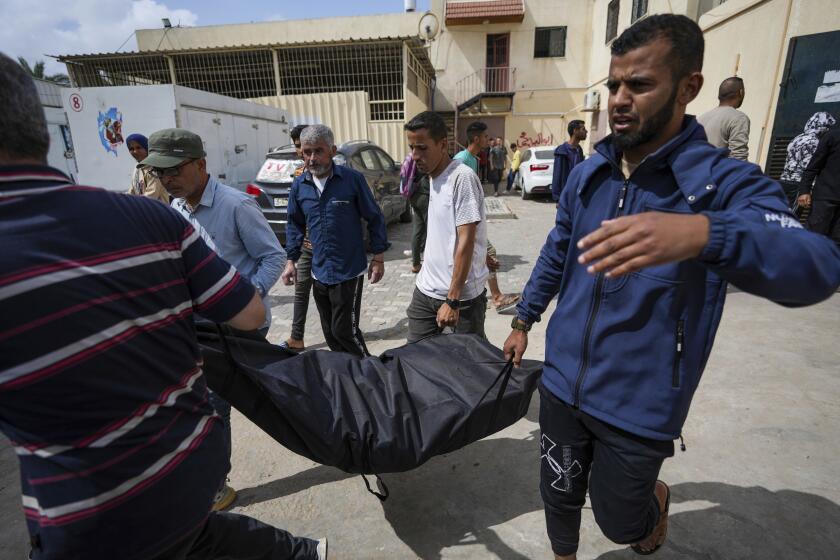Deja vu in Kabul
For years, opponents of the Iraq war claimed it was an unwinnable waste of resources that wasn’t worth fighting anyway. The real war against terrorists, they argued, should be waged in Afghanistan. But now that Iraq has made heartening progress and we are finally sending more troops to Afghanistan, the critics are applying to Afghanistan the same arguments they once used in favor of partial or total withdrawal from Iraq.
Afghanistan, we are told, is a hopeless quagmire. A Newsweek cover story screams “Obama’s Vietnam.” Andrew J. Bacevich of Boston University writes, “Afghanistan will be a sinkhole, consuming resources neither the U.S. military nor the U.S. government can afford to waste.”
Skeptics, including many in uniform, contend that we need to downsize our goals in Afghanistan. Establishing a functioning democracy, they say, is too ambitious in an underdeveloped Muslim country with little sense of nationhood. According to the Associated Press, a Joint Chiefs of Staff report advises “squeezing Taliban and Al Qaeda sanctuaries inside neighboring Pakistan while deemphasizing longer-term goals for bolstering democracy.”
But don’t worry, the naysayers assert, we can still achieve our core objectives in Afghanistan. George Friedman, of the private intelligence firm Stratfor, opines in the New York Times that Afghanistan requires “intelligence, and special operations forces and air power that can take advantage of that intelligence. Fighting terrorists requires identifying and destroying small, dispersed targets. We would need far fewer forces for such a mission than the number that are now deployed.”
It is striking the extent to which the arguments now being made about Afghanistan were previously made -- and discredited -- in the case of Iraq. The only thing we haven’t heard yet is a proposal to dismember Afghanistan into mini-states. But with Joe Biden in the White House, we can expect that brainstorm to pop up soon.
Is it quixotic to try to build democracy in Afghanistan? The same thing was said of Iraq. It is true that holding elections wasn’t a magic elixir there. But once the security situation started to improve, Iraq’s political process began to function and competing factions started to solve problems with handshakes rather than bombs.
The latest provincial elections delivered a strong showing for centrist, secular candidates -- a far cry from the sort of extremists (Hamas, for example) that are thought to be favored in Middle Eastern voting. In the long run, democracy in Iraq is likely to strengthen stability. That’s just as well, because installing a “Saddam Lite” strongman was never a serious option. Most Iraqis would not have put up with it.
Nor would Afghans stand for a strongman “solution.” In a 2007 poll conducted by the Asia Foundation, 85% agreed that “democracy may have its problems, but it is better than any other form of government.” In Afghanistan, as in Iraq, there is no practical alternative to supporting the democratic process if we want to create a government with legitimacy, the sine qua non for defeating any insurgency.
What about the argument that we don’t need more troops in Afghanistan? Can’t a handful of special operations forces prevent a takeover by extremists? We tried that in Iraq. From 2003 to 2006, U.S. troops withdrew to large bases while the Joint Special Operations Command carried out strikes on targets such as Saddam Hussein and Abu Musab Zarqawi. That turned into a game of whack-a-mole. As top-level terrorists were going down, new ones were popping up and the war was being lost.
The war effort was turned around by an increase in U.S. and Iraqi troop numbers and by the decision to push U.S. troops into outposts in population centers. Ordinary Iraqis could rat out terrorists, secure in the knowledge that they would be protected from retaliation. Whether in Iraq, Afghanistan or anywhere else, only counterinsurgents who live among the people can acquire the knowledge to identify insurgents.
The Bush administration lost sight of that basic truth because leaders from Donald Rumsfeld on down feared that increasing troop numbers would stoke resentment of foreign occupation. Similar concerns are expressed today about Afghanistan by Secretary of Defense Robert M. Gates. He recently told Congress: “My worry is that the Afghans come to see us as part of the problem, rather than ... the solution. And then we are lost.”
But in Iraq, the “surge” was welcomed by a populace concerned above all by pervasive insecurity. The same thing is likely to happen in Afghanistan as U.S. troop numbers rise. In both nations, nothing feeds anti-Americanism more than concerns that U.S. troops aren’t doing enough to impose law and order.
This is not meant to minimize the difficulties in Afghanistan or exaggerate the similarities with Iraq. Afghanistan is a larger and poorer country with more difficult terrain and fewer resources of its own. It also has more porous borders with a much larger problem of terrorist infiltration. And it is a much more difficult place to keep a large military force supplied. But we should not exaggerate the difficulties either. According to the Brookings Institution, civilian casualties in Afghanistan last year (1,445) were a fraction of the casualties in Iraq at the height of the fighting. Fom July 2006 to September 2007, at least 2,000 Iraqis were dying each month.
Keep in mind that until fairly recently, the conventional wisdom was that we had already won in Afghanistan and could never win in Iraq. Now we hear the reverse, but the new zeitgeist is no sounder than the old. We can win in Afghanistan, as we are now winning in Iraq.
The key is for policymakers to ignore the naysayers. They will get louder over time, because, just as in Iraq, a surge in the number of U.S. soldiers in Afghanistan will inevitably bring about a short-term spike in casualties. But if President Obama doesn’t lose his nerve, the odds are that a classic counterinsurgency strategy, supported by adequate troop levels, can turn around another failing war effort.
Max Boot is a senior fellow at the Council on Foreign Relations and a contributing editor to Opinion. He is the author, most recently, of “War Made New: Technology, Warfare, and the Course of History, 1500 to Today.”
More to Read
Start your day right
Sign up for Essential California for news, features and recommendations from the L.A. Times and beyond in your inbox six days a week.
You may occasionally receive promotional content from the Los Angeles Times.






